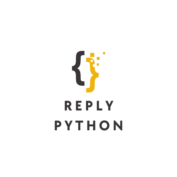Python programming has garnered immense popularity in recent years for its simplicity and versatility. Many aspiring programmers often wonder, “Is Python programming hard?” This article delves into the intricacies of learning Python and dispels common misconceptions about its difficulty.
With its clean syntax and readability, Python is renowned for being beginner-friendly, making it an ideal choice for those new to coding. Despite its user-friendly nature, mastering Python still requires dedication and practice to grasp its full potential. By understanding the nuances of Python programming, individuals can harness its power for a wide range of applications.
Whether you’re a novice embarking on your coding journey or an experienced developer exploring new languages, unraveling the question of whether Python programming is hard can lead to valuable insights and opportunities in the ever-evolving tech landscape.
Is Python Programming Hard
Python programming is a versatile and popular language known for its simplicity and readability. Understanding Python’s basics is crucial for beginners looking to grasp its fundamental concepts and syntax efficiently.
To excel in Python programming, individuals need to familiarize themselves with essential concepts such as variables, data types, loops, and functions. Python’s straightforward syntax allows for easy coding and quick prototyping, making it an ideal choice for beginners.
Python’s widespread adoption in various domains, including web development, data science, and AI, has led to a robust community of developers and enthusiasts. This strong community support provides ample resources, forums, and libraries to aid programmers at all skill levels in their Python journey.
Evaluating the Difficulty of Python Programming
Python’s Syntax and Readability:
Python stands out for its straightforward syntax and high readability. The language is designed to prioritize simplicity, making it easier for  programmers to express concepts with fewer lines of code. This characteristic reduces the cognitive load on developers, enabling them to focus more on problem-solving rather than deciphering complex syntax intricacies.
programmers to express concepts with fewer lines of code. This characteristic reduces the cognitive load on developers, enabling them to focus more on problem-solving rather than deciphering complex syntax intricacies.
Accessibility for Beginners:
One of Python’s greatest strengths is its accessibility to beginners. The language’s clear and concise syntax, coupled with a vast array of resources and supportive community, makes it an ideal choice for those starting their coding journey. Beginners can quickly grasp fundamental programming concepts and progress to more advanced topics seamlessly due to Python’s beginner-friendly nature.
Comparing Python to Other Programming Languages
When comparing Python to other programming languages, it’s important to note some key differences that set it apart.
Python vs. Java
Python and Java are both widely used programming languages, but they have distinct differences. While Python is known for its simplicity and readability, Java is favored for its performance and scalability. Python’s flexibility and ease of use make it a popular choice for beginners and rapid development projects. On the other hand, Java’s strong typing system and strict syntax appeal to enterprise-level applications requiring robust performance. Both languages have large community support and extensive libraries, catering to different development requirements.
Python vs. JavaScript
Python and JavaScript are versatile languages, each with its strengths and weaknesses. Python excels in data analysis, machine learning, and  scientific computing due to its rich ecosystem and libraries like NumPy and pandas. In contrast, JavaScript dominates web development, offering dynamic and interactive front-end experiences. Python’s clean syntax and ease of learning make it suitable for beginners entering the programming world, while JavaScript’s widespread use in web browsers provides developers with essential tools for client-side scripting. Understanding the unique strengths of each language allows developers to choose the most appropriate one for their specific project requirements.
scientific computing due to its rich ecosystem and libraries like NumPy and pandas. In contrast, JavaScript dominates web development, offering dynamic and interactive front-end experiences. Python’s clean syntax and ease of learning make it suitable for beginners entering the programming world, while JavaScript’s widespread use in web browsers provides developers with essential tools for client-side scripting. Understanding the unique strengths of each language allows developers to choose the most appropriate one for their specific project requirements.
When considering resources to learn Python programming, individuals can turn to online courses and tutorials as valuable tools. Platforms like Coursera, Udemy, and Codecademy offer a wide range of courses suitable for beginners to advanced learners. These courses often provide step-by-step guidance, interactive exercises, and hands-on projects to enhance learning outcomes. Additionally, online tutorials available on websites such as Real Python, W3Schools, and Python.org offer free and accessible learning materials for those looking to grasp Python concepts at their own pace.

